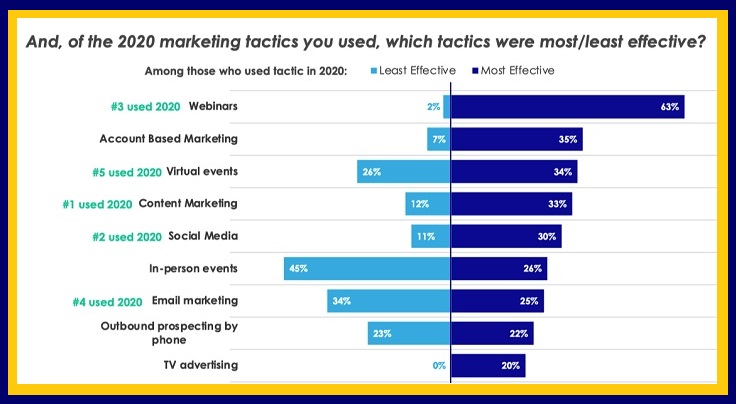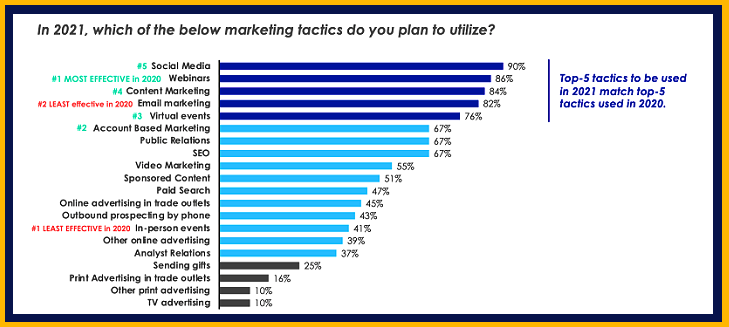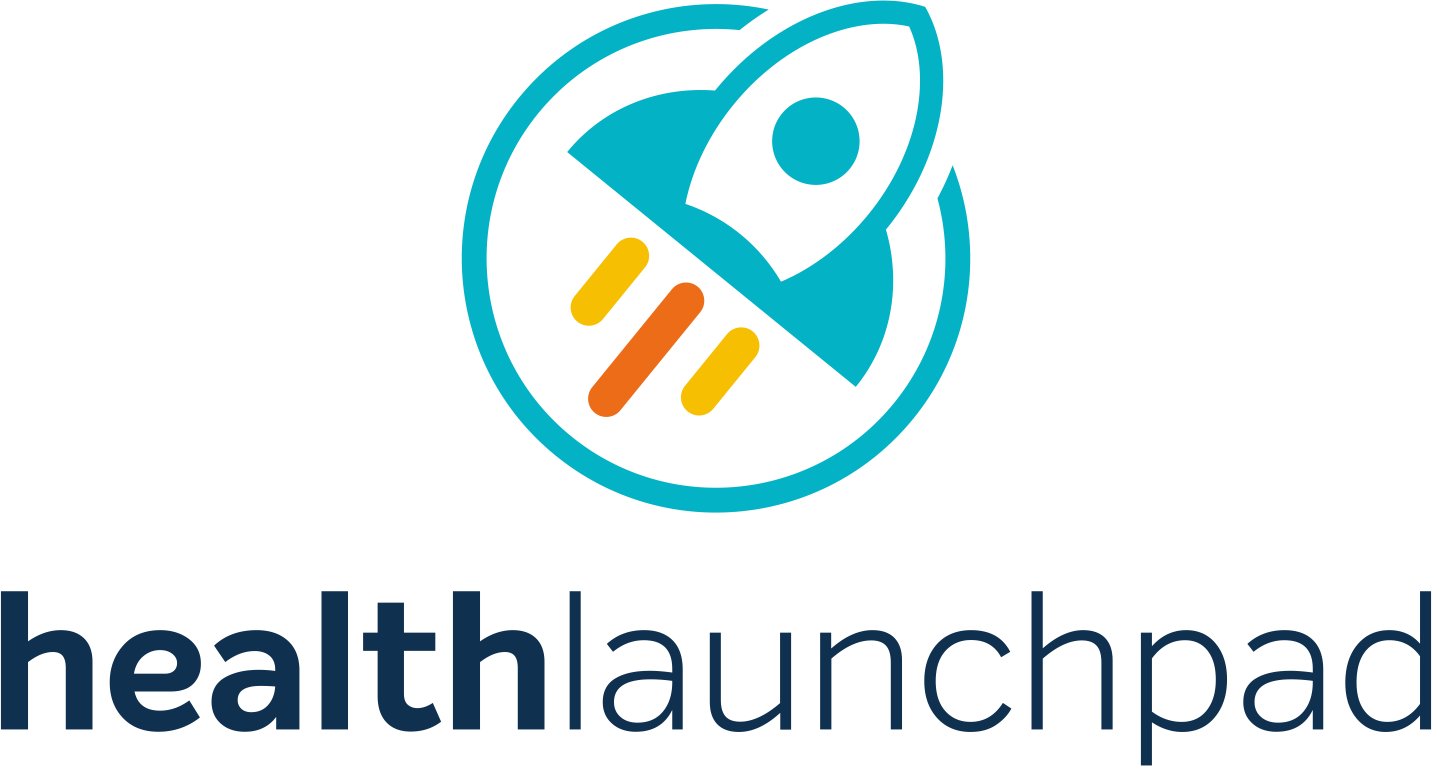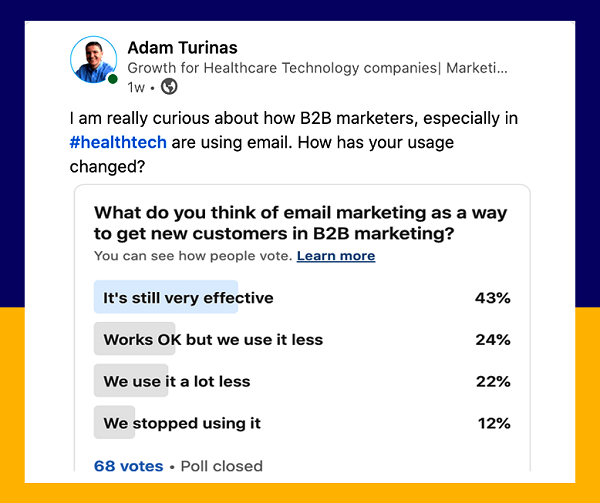When it comes to email for B2B lead generation, I have a love-hate relationship with this tactic.
During the time I was running my own health-tech company (you can read my story here), I tried a variety of different B2B lead generation tactics including webinars, social media, paid search, and also email.
I am embarrassed to say that the email strategy never worked well for us.
I currently use email in several ways with my healthlaunchpad clients. This includes using email to promote webinars and developing relationships by sharing content via email.
In my client work, I have had mixed success with straight sales B2B lead and nurturing sequences. It takes a high volume of messages to get a response for most campaigns, especially in competitive and crowded markets.
In the last few years, it has become even harder to get results with email. One of the main reasons for this is the billions of dollars being invested in digital health companies. Much of this is going into marketing including email. There are too many email marketers chasing a limited number of sales opportunities.
Last week, I spoke with the Chief Digital Officer (CDO) of a large healthcare system. She told me that she gets 200+ emails a day from marketers. She ignores them all. A CIO told me last week that he responds to about 4 unsolicited emails per year. Hardly a great hit rate.
What Do Marketers Think of Email for B2B Lead Generation? – healthlaunchpad/HIMSS Survey Findings
Late last year, healthlaunchpad and HIMSS ran a survey across the healthcare technology marketing industry.
We wanted to know how healthcare marketers had adapted to the pandemic, what tactics were working for B2B lead gen, and how they were using ABM among other issues.
You can view the survey webinar and download the full report here.
The most interesting thing is that there appears to be a big disconnect between how effective people thought emails were and their future intentions.
This chart, from the report, shows that the health-tech marketers viewed email as the second least most effective B2B lead gen tactic.

Interestingly, as indicated in the findings below, the vast majority still planned to use the email tactic in 2021.

I put this down to a couple of things. First, it’s hard to break the habit of a lifetime, and email has been a habitual B2B lead generation tactic for three decades.
Second, email is still an important tactic along with other tactics such as webinars as part of a virtual event strategy.
How Does Email Fit Into Healthtech Marketers’ Sales Lead Programs Today?
Recently, I was speaking with the Chief Marketing Officer of a multi-billion dollar health-tech firm and I asked him about email. He surprised me by saying that they don’t use it anymore.
They have shifted to LinkedIn for B2B lead gen and relationship development.
This prompted me to do a quick survey on LinkedIn. I have posted the finding at the top of the post.
As you can see from the survey results, most of those who responded do not view email as working as well for them as it used to.
However, it is still viewed as an effective B2B lead tactic by 43% of healthcare marketers. Most interesting to me is that a third of marketers have either stopped using or use it a lot less.
By the way, together with HIMSS, we ran another wave of the healthcare technology marketing survey. It will be interesting to see what’s changed.
Watch this space!

